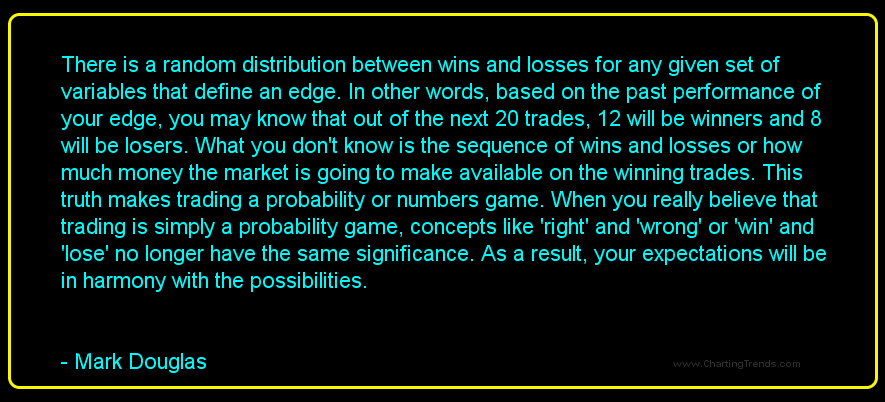
Interesting metaphor here for today's global central bank policies


| When a pundit says | They really mean |
| “We suggest reducing exposure” | We were betting the Brits would vote remain |
| “I am not an expert in foreign policy, but…” | Prepare for a thoroughly uninformed, useless opinion |
| “The macro forces at work” | Allow me to construct a reassuring narrative |
| “The smart money is betting” | I won’t assume any responsibility for this next bit of foolishness |
| “It has long been our position” | That’s my story and I am sticking to it, even if it’s wrong |
| “We don’t see a recession” | We didn’t see the last recession either |
| “We expect the second half of the year” | We were wrong in the first half of the year |
| “The chart shows…” | The fundamentals are terrible |
| “We still like the fundamentals…” | The technicals are terrible |
| “We have a ‘Buy’ on the stock” | Now if only we can figure out who is dumping all those shares! |

The first big mistake is the flawed logic of extrapolation. Many traders and investors assume that a trend will remain in force until an “event” comes along to change it. But market trends are not like billiard balls on a pool table. This false assumption will put you on the wrong side of the market more times than not, especially at major turning points.
The second big mistake is to suppose that news events drive market trends. In fact, the opposite is true: economic, political and social events lag market trends.

Successful traders fail all the time. In fact, many even fail a majority of the time. The difference is that their failures are not a failure to execute their plan. The failure rests in the fact that the expertly chosen trade turned out to be wrong (nobody can be right 100% of the time – except Congress). And when the trade was wrong, they took their loss which resulted in minimal damage to their portfolio and moved on to the next opportunity. |
|
1. Trading is simple, but it is not easy.
2. When you get into a trade watch for the signs that you might be wrong.
3. Trading should be boring.
4. Amateur traders turn into professional traders once they stop looking for the “next great indicator.”
5. You are trading other traders, not stocks or futures contracts.
6. Be very aware of your own emotions.
7. Watch yourself for too much excitement.
8. Don’t overtrade.
9. If you come into trading with the idea of making big money you are doomed.
10. Don’t focus on the money.
11. Do not impose your will on the market.
12. The best way to minimize risk is to not trade when it is not time to trade.
13. There is no need to trade five days a week.
14. Refuse to damage your capital.
15. Stay relaxed. (more…)
